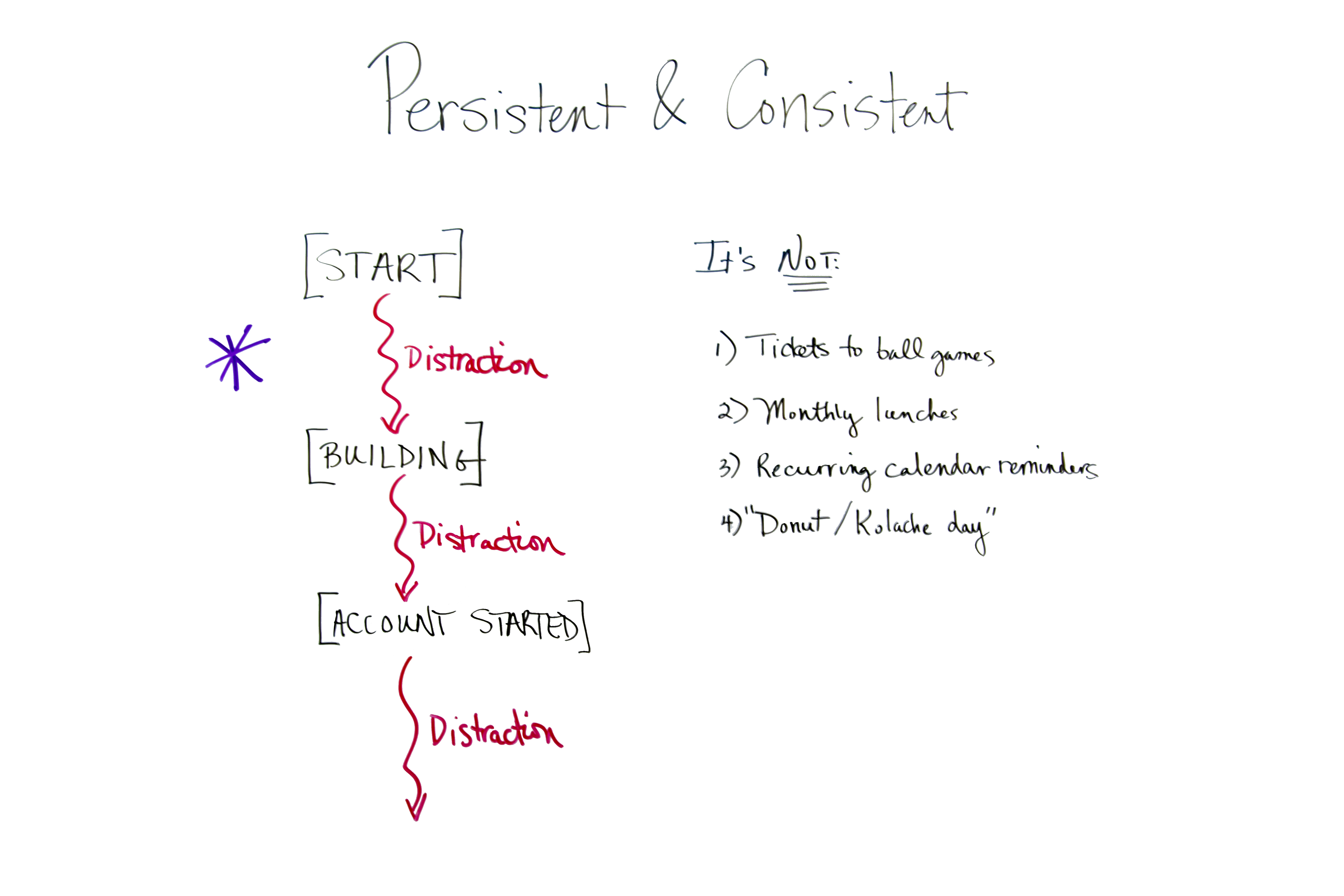RESET: The Importance of Being Persistent & Consistent with Messaging
August 20, 2015 | By Wayne O'NeillIn this month’s video, I talk about the importance of being persistent and consistent with your messaging and follow-up. And no, you’re not being a nag when you call, email, or text a potential client. Well, as long as you’re not sending the standard, “hey, I’m just following up to see how you’re doing.” Or, “I just wanted to check in on the next steps.”
Check out the video to learn more about the three important phases of connecting with a potential client, and how being persistent and consistent can help you deliver impact when and where it has the potential to create momentum.
In 30 years of actually experiencing go-to-market issues myself, and then 10 years of the practice of Wayne O’Neill & Associates, there’s an underlying issue that I think almost every single one of our clients struggles with — and certainly even the executives, the top leadership of our clients, struggle with — is how much is the right amount of follow up? And what’s the right way to follow up in all stages of trying to get accounts started?
And here’s what I think is the nagging thing that everybody’s worried about– are we being too pesty? Are we really paying attention in the right way? Well, let me give you two words to make it simple, that can guide your whole go-to-market team, that can guide the way to make it so that you’re not worried about this, you’re not anxious about this.
And that’s being persistent and consistent about the impact of your message and how much that could mean to
the client that you’re trying to deliver that to, whether it’s a service or product.
Because there’s really three stages of that process of connecting with the client. There’s the start, but there’s always going to be distractions around the start. Is your product or service connected to one of the top five things that they’re worried about? As you’re trying to build that account or trying to cement that account relationship, there’s going be distractions around that point.
And then as you’re trying to start the actual execution and deliverables there. They’re still kind of a socializing of the decision making. But at the very start of this here’s what clients pay attention to– how passionate are you about that impact, that solution that you can deliver and how is it connected with what they’re worried about? And here’s another subtle little thing that we may not notice is the clients– and particularly the different paths that you’re trying to connect into– are they email driven? Are they text driven? Are they phone conversation driven? Or, in rare cases, but more common than you might think, are they very engagement driven where they like all three?
Here’s what this means to you and here’s what gives you power in all this. If they catch you paying attention to those preferences– like if you’ve got somebody that really likes text ,and you start texting them a lot– they feel respected. The same token, they can feel incredibly insulted if they don’t like to get texts from only just a few people. It’s a behavioral issue. That and combined with your passion about the impact of your service or product connected to their issues keeps you so far out of that pest category that it just eliminates the anxiety for you as a top executive.
But look, here’s the punchline. There’s a lot of traditional ways to follow up. There’s bringing donuts to clients– we make a lot of comments about that. There’s ball games. There’s putting things on your calendar to make sure you touch people. That’s not what clients notice. What they notice is the subtlety of your behavior and how animated and passionate you are about the impact of what your product or service does, particularly as it relates to them.
They’re paying attention to that. They’re not listening to your words. I heard this story said over and over again, sometimes they don’t even remember your name. But they damn sure remember how connected you are and how passionate you are about the impact of what you do.
So the final analysis, being persistent and consistent gives you power and really kind of eliminates the anxiousness that we all may feel and worrying about being too pesty with clients we’re trying to bring into the fold. So thanks for listening and be safe.
-
Your comment is awaiting moderation. This is a preview; your comment will be visible after it has been approved.
Thank you for your sharing. I am worried that I lack creative ideas. It is your article that makes me full of hope. Thank you. But, I have a question, can you help me?

